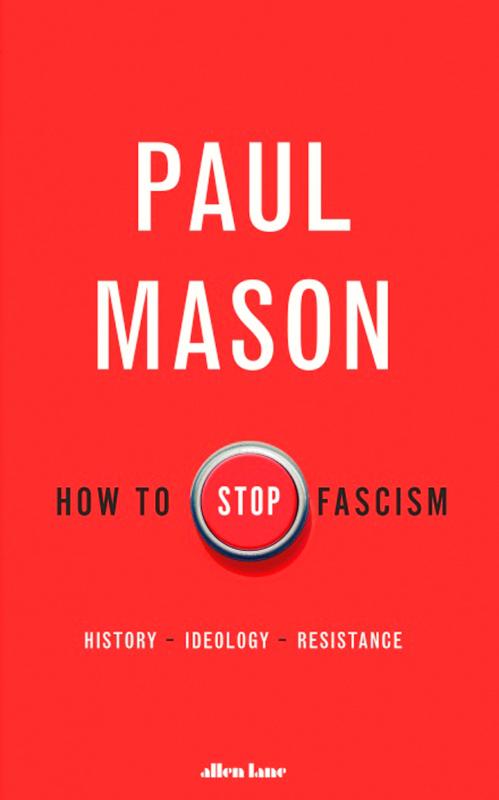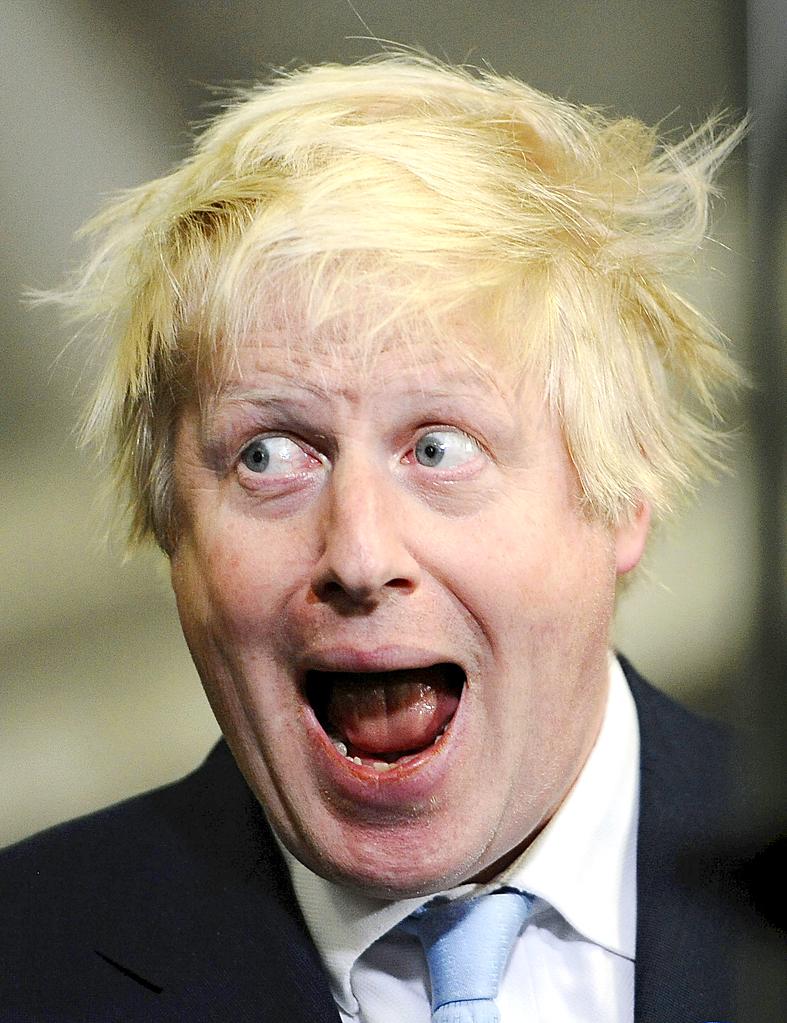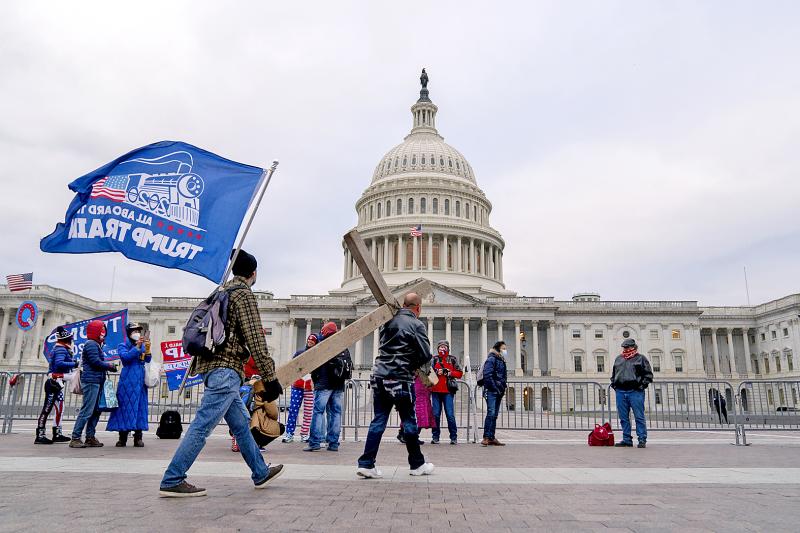Paul Mason was born in Lancashire in 1960, the son of a headmistress and a lorry driver. He started his career as a music teacher before becoming a journalist in the early 90s. He joined BBC’s ‘Newsnight’ as a business editor in 2001 and he later worked for Channel 4 News, jobs that took him to China, Gaza and across Bolivia. In 2016, Mason quit broadcasting to pursue writing full time. His latest book, ‘How to Stop Fascism’, draws from his own anti-fascist activism in the 1970s and 80s and explores how a new wave of fascism in the 21st century can be prevented from rising.
Killian Fox: What prompted you to write the book at this particular moment?
Paul Mason: In September 2019, I was on a peaceful pro-remain rally in Whitehall that got surrounded by quite violent Brexit supporters, who turned out to be Tommy Robinson fans. They were shouting: “Paul Mason, you’re a Marxist… you’re a traitor to our country.” Ten years ago, such people would have been talking about migrants taking our jobs, and now they’re worried about Theodor Adorno and Walter Benjamin. I realized something had changed: rightwing populism has been given intellectual coherence by the thought architecture of fascism. As someone who’s been involved in anti-fascism on and off for four decades, it made me think, I need to go back and relearn what fascism is.

KF: Do you have a concise definition?
PM: We need to be careful, because definitions are not explanations. And when you’re facing a phenomenon like the far right, that mutates quickly, definitions aren’t that useful. But for me, a definitive statement would be that fascism is the mobilization of people’s fear of freedom after they’ve seen a glimpse of freedom — of the possibility that technological modernity and education and universal rights could actually free us. They’re not just afraid of other people becoming free. Deep down, they fear their own freedom, too.
KF: Looking around the world, do you see fascism still as a sort of closet phenomenon, an incipient threat? Or has it realized itself anywhere?

Photo: AP
PM: There is no fascist state in the world. But modern fascism doesn’t want that, it’s happy for now. Its interests are being represented in government by rightwing populists and authoritarians such as Duterte, Erdogan, Orban, Bolsonaro and, I’m sorry to say, Johnson. Fascists are quite happy to see these leaders scour the insides of democracy and push narratives that undermine truth, the authority of judges, of academic institutions, because it’s in that space that the fascists do what they do, which is to prepare.
KF: Who do you mean, exactly, when you talk about modern fascism?
PM: I’m talking about fascist or far-right groups such as the Proud Boys in America and the online networks of white supremacists. In the UK, the far-right groups are small but their online influence is large. Who is the proxy for them? Well, they had the Brexit party, they had Ukip, and now they’ve got parts of the Tory party. Rightwing populism is no longer functioning as a kind of firewall that protects us from fascism. It’s functioning as an accelerator.

Photo: Bloomberg
KF: Is there clear evidence that these groups are on the rise?
PM: There’s no better evidence than the fact that they managed to storm the legislature of the oldest democracy in the world. The evidence in Germany is the double-digit growth for the Alternative fur Deutschland, and in Spain the 3 million votes for the Vox party. We can’t obsess about membership figures because, in a networked society, membership figures aren’t the issue. It’s who’s retweeting, who’s posting 10 times a day on a secret Facebook group, and it’s a lot more than a few thousand people.
KF: Do you feel we are underestimating the fascist threat?
PM: Pentti Linkola, the late Finnish ecofascist, basically said the Earth can sustainably support about half a billion people, and the other six and a half billion ought not to exist. When it comes to choosing who to cull, the implication for modern ecofascism is: those whose future economic development is detrimental to the Earth — in other words, the peoples of the global south. Linkola said this has to happen, if necessary, through war and genocide. Hitler thought in millions. Modern fascism is thinking in billions. And if you believe there’s even a 5 percent chance that these guys will one day find their path to power, we should be doing far more to debunk and pre-bunk their ideas.
KF: What else should we be doing to stop fascism?
PM: Hannah Arendt described fascism as the temporary alliance of the elite and the mob, and the only thing that ever defeated that was the temporary alliance of the center and the left — and that’s what we need. We need a better institutional response, meaning anti-fascist laws of the kind that Germany has, including official state surveillance of non-violent groups that are headed towards fascism. But deeper than all of that, we need to create and hold on to an anti-fascist ethos. There is now an overt and legitimized hostility to anti-fascism, because Trump has redefined what it is, by stirring up fear of antifa.
KF: You quit broadcasting in early 2016, just before Brexit, Trump and all that followed. Do you regret missing the opportunity to cover those things as a news journalist?
PM: No, I quit in order to be able to have an opinion for them. I found that the truth I was able to tell in a documentary produced outside Channel 4 was closer to the truth than the truth I was telling for Channel 4. Not because Channel 4 News is in any way bad. It’s probably the greatest place I’ve ever worked. But the constraints of public service broadcasting, I think, were getting in the way of the truth. For them the first thing is impartiality.
KF: Which British politicians do you rate?
PM: Above all Clive Lewis, who understands the need for a central-left alliance, and for it to be based on an ethical anti-fascism. I think Caroline Lucas also gets it, and so does Jamie Driscoll, the North of Tyne mayor. Nadia Whittome is a young MP who speaks for her generation. But that’s about it really.
KF: What books are on your bedside table?
PM: I’m not a huge reader of modern fiction, though I did enjoy Arkady by Patrick Langley. I’m reading a lot about thermodynamics at the moment and I’ve got a textbook by the Nobel prize winner Ilya Prigogine, and the lovely book Helgoland by Carlo Rovelli. I am a huge fan of Thomas Pynchon, I reread his big books every year. I am also a huge fan of Virginia Woolf — both her fiction and nonfiction.
KF: Which nonfiction writers working today do you particularly admire?
PM: Well, Rovelli is one. Adam Tooze is another. Natasha Lennard, Richard Seymour and Laurie Penny — everything they produce I consume and find value in.
KF: What kind of reader were you as a child, and which books and authors have stayed with you since childhood?
PM: The big lightbulb moment for me was reading Frank Herbert’s Dune when I was 12. I was bought it for my birthday and I literally lay on the floor and read the entire thing in a day. The central concept is something that informs my politics: that the things that are done to the most oppressed people on Earth make it possible for them to defeat the biggest evils on Earth. That was the lesson I took away from Herbert. And I remain of the belief that those to whom bad things are done can find the moral courage to fight back successfully.
KF: What’s your writing routine?
PM: I write quite early. My partner is legendarily frustrated by the fact that I’m sometimes up at 4am. I love the darkness of the early morning.

Under pressure, President William Lai (賴清德) has enacted his first cabinet reshuffle. Whether it will be enough to staunch the bleeding remains to be seen. Cabinet members in the Executive Yuan almost always end up as sacrificial lambs, especially those appointed early in a president’s term. When presidents are under pressure, the cabinet is reshuffled. This is not unique to any party or president; this is the custom. This is the case in many democracies, especially parliamentary ones. In Taiwan, constitutionally the president presides over the heads of the five branches of government, each of which is confusingly translated as “president”

Sept. 1 to Sept. 7 In 1899, Kozaburo Hirai became the first documented Japanese to wed a Taiwanese under colonial rule. The soldier was partly motivated by the government’s policy of assimilating the Taiwanese population through intermarriage. While his friends and family disapproved and even mocked him, the marriage endured. By 1930, when his story appeared in Tales of Virtuous Deeds in Taiwan, Hirai had settled in his wife’s rural Changhua hometown, farming the land and integrating into local society. Similarly, Aiko Fujii, who married into the prominent Wufeng Lin Family (霧峰林家) in 1927, quickly learned Hoklo (commonly known as Taiwanese) and

The low voter turnout for the referendum on Aug. 23 shows that many Taiwanese are apathetic about nuclear energy, but there are long-term energy stakes involved that the public needs to grasp Taiwan faces an energy trilemma: soaring AI-driven demand, pressure to cut carbon and reliance on fragile fuel imports. But the nuclear referendum on Aug. 23 showed how little this registered with voters, many of whom neither see the long game nor grasp the stakes. Volunteer referendum worker Vivian Chen (陳薇安) put it bluntly: “I’ve seen many people asking what they’re voting for when they arrive to vote. They cast their vote without even doing any research.” Imagine Taiwanese voters invited to a poker table. The bet looked simple — yes or no — yet most never showed. More than two-thirds of those

In the run-up to the referendum on re-opening Pingtung County’s Ma-anshan Nuclear Power Plant last month, the media inundated us with explainers. A favorite factoid of the international media, endlessly recycled, was that Taiwan has no energy reserves for a blockade, thus necessitating re-opening the nuclear plants. As presented by the Chinese-language CommonWealth Magazine, it runs: “According to the US Department of Commerce International Trade Administration, 97.73 percent of Taiwan’s energy is imported, and estimates are that Taiwan has only 11 days of reserves available in the event of a blockade.” This factoid is not an outright lie — that